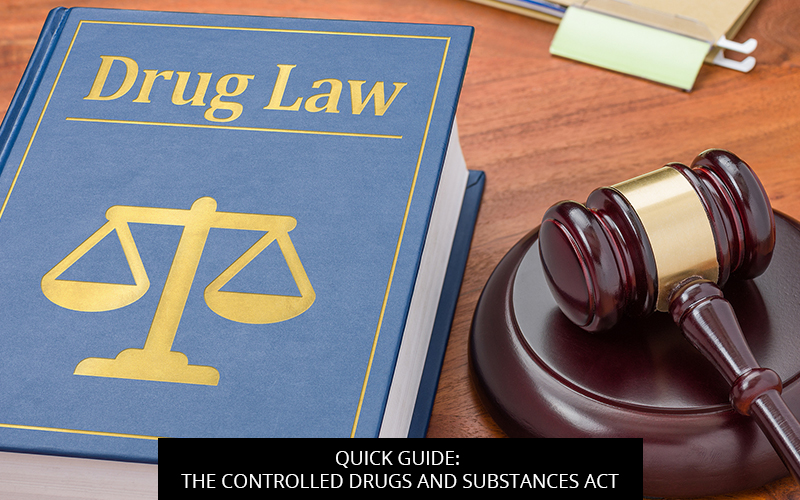
The Controlled Drugs and Substances Act (CDSA) is the legislation on most drug related offences in Canada that regulates the activities pertaining to these drugs. Such activities may include, but are not limited to, possession, import, export, assembly, distribution, sale, transport, and exchange of Controlled substances and various precursors that may be utilized to manufacture illegal drugs. Many different substances have prohibited or restricted uses (i.e., opiates are unlawful for recreational use but are permitted for use under direction of medical professionals). There are several drug precursors/ingredients that are also restricted by the CDSA.
Schedules
The CDSA divides the different types of substances into “schedules” (as listed in Schedules I to V of the CDSA), to classify them based on the severity of the harm that they can cause. There are various substances which are controversial in their placement in the schedule scheme, and the parliament from time to time enacts changes to drug classifications. Schedules I, II, III and IV contain a vast majority of substances. There are different penalties depending on which “Schedule” a drug is placed under, when an offence is committed. For example, anyone who contravenes the provisions of the act by possessing the substance of Schedule I may be guilty of an indictable offence, and accordingly liable to an imprisonment for a term not exceeding seven years. On the other hand, if the person is a guilty of possessing any substance included under the Schedule II, he/she may be liable for an imprisonment for a term not exceeding five years less a day. Further, if the person possesses a substance included in Schedule III, then the punishment for an indictable offence may include imprisonment for a term not exceeding three years.
Types Of Offences
The basic types of offences contained in the CDSA can be classified as possession, trafficking, importing/exporting and producing. The penalties vary substantially based on type of substance (or the schedule the substance is categorized under) as well as amount of the substance in question. Many CDSA offences are indictable and can carry a lengthy term for imprisonment such as in case of an indictable offence related to possession of a drug corresponding to Schedule I. There are some hybrid offences which could result in summary conviction, primarily the less severe crimes fall under the heading of possession related offences.
The most common offence laid under the CDSA is possession of a controlled substance. Except as authorized under the regulations, no person shall possess a substance included in Schedule I, II or III. In order for the Crown to make their case on a possession charge. they must address all of the elements of the crime. For example, the crown must prove:
- that the substance was in fact an illegal drug (possessing rock salt that you believed was crack cocaine would likely result in an acquittal).
- that the accused had care and control of the substance.
- that the accused had knowledge that the substance was an illegal drug.
In other words, you must intentionally be in possession of a controlled drug/substance in order to be convicted.
If you have been charged with any offence under CDSA, a conviction can result in serious consequences for finding employment, travelling, or applying for immigration status, in addition to a custodial sentence or other consequences. In order to best protect your rights, you should contact a criminal lawyer as soon as you are charged. A criminal defence lawyer can help you at any stage of the court process. “Ayaz Mehdi Professional Corporation” has trained criminal lawyers on staff who can assist you with your case.
Disclaimer: Use of this site and sending or receiving information through it does not establish a solicitor-client (Attorney-Client) relationship in any manner. The views expressed and the content provided on this blog is for non-profit educational purposes. It is not, and is not intended to be, a legal advice on any specific set of facts. If you require legal advice, you should contact a lawyer directly.




